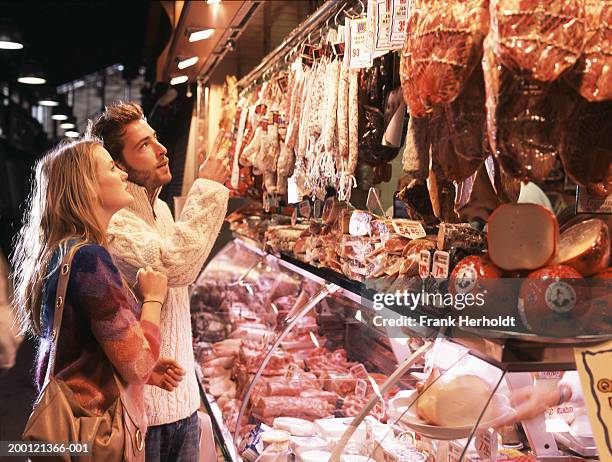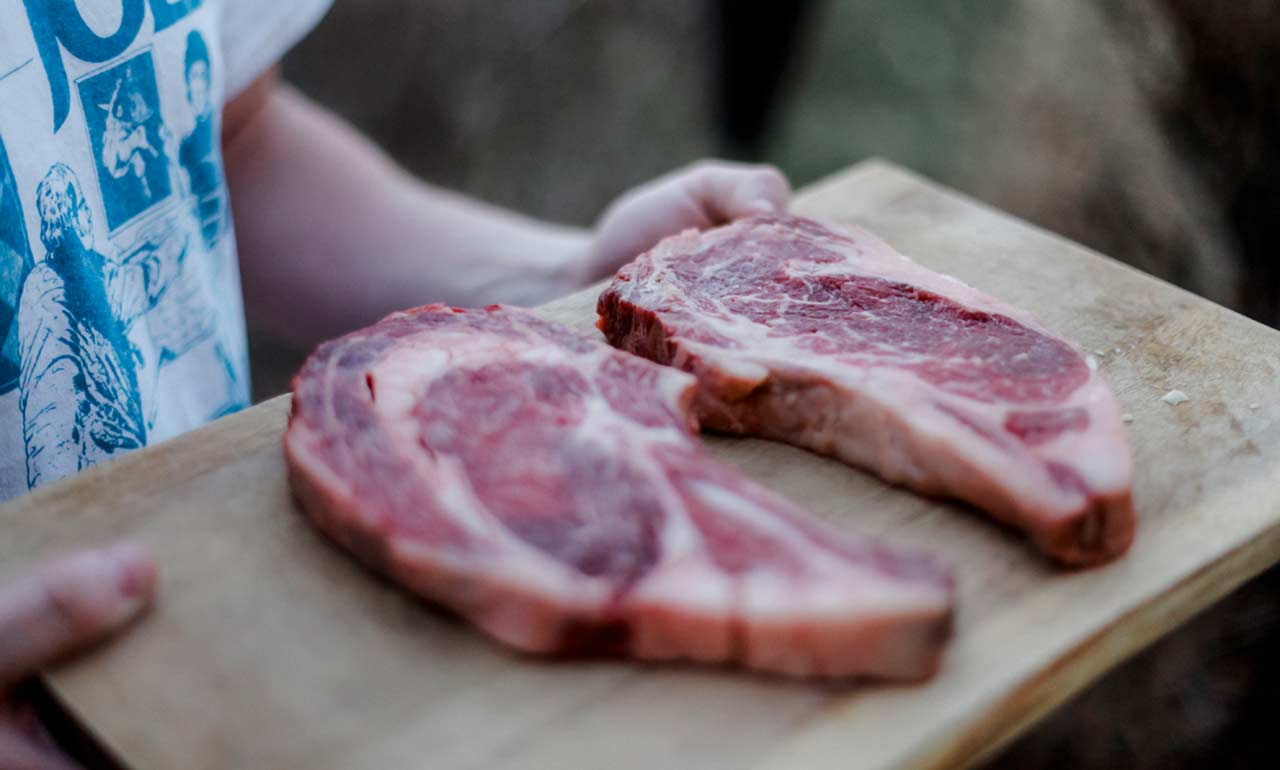Bagley Meat Market Edwardsville IL – Your One-Stop Shop for Fresh and Quality Meats
Why Buying at a Regional Meat Market Guarantees Fresh, High-Quality Cuts
Shopping at a neighborhood meat market supplies distinct advantages that typically go unnoticed by customers accustomed to larger retail chains. These markets offer direct accessibility to fresh, high-quality cuts, a result of reduced transportation time from ranch to respond to. This not just enhances flavor however likewise sustains regional farmers, fostering area connections and sustainable practices. Moreover, strenuous quality control measures make sure that each acquisition fulfills high criteria of security and freshness (bagley meat market edwardsville il). The ramifications of picking local prolong beyond prompt benefits, prompting a more detailed assessment of what this choice truly means for both consumers and the neighborhood economic climate.
Advantages of Local Sourcing
In the world of food purchase, the advantages of local sourcing stand out plainly. By buying meat from local markets, customers get straight access to products that are frequently fresher and more savory than those located in larger, business supermarkets. Neighborhood sourcing decreases the moment and range food travels from farm to table, which not only enhances preference but additionally protects nutritional value.

Additionally, regional sourcing often offers transparency relating to the beginnings of the meat. Consumers can ask concerning the farming methods utilized, animal well-being requirements, and whether the meat is grass-fed or organic. This information empowers shoppers to make enlightened decisions lined up with their values.
Top Quality Control Specifications
Neighborhood meat markets usually follow strenuous top quality control standards that make certain the items supplied meet high security and quality benchmarks. These standards commonly encompass various stages of the meat production process, from sourcing to dealing with and storage space.
First, local markets typically develop stringent supplier standards, guaranteeing that just credible ranches and manufacturers are used - bagley meat market edwardsville il. This minimizes the likelihood of contamination and promotes greater animal well-being standards. In addition, lots of local meat markets apply routine inspections to verify that the meat is processed under sanitary conditions, better minimizing wellness risks
Temperature control is another important facet of quality assurance. Regional meat markets frequently keep track of refrigeration systems to preserve optimum storage temperature levels, guaranteeing that meat remains secure and fresh for consumption. Moreover, the application of traceability systems permits markets to track the beginning of their items, giving openness and liability.
Last but not least, personnel at regional meat markets are often trained to recognize indicators of perishing and recognize appropriate handling strategies. This dedication to quality assurance not just raises the overall criterion of the meat however also cultivates consumer count on, making regional meat markets a dependable resource for top quality cuts.
Supporting Local Farmers
Sustaining neighborhood farmers is essential for promoting a lasting food system and enhancing neighborhood strength. When consumers pick to patronize neighborhood meat markets, they directly add to the resources of farmers in their area. This not only supports the regional economic climate but also strengthens the farming industry, guaranteeing that it continues to be vivid and sensible.


In addition, supporting neighborhood farmers cultivates a sense of area and link between customers and manufacturers. It motivates openness in food sourcing and instills depend on, as use this link consumers can create connections with the people who raise their food. This direct link eventually results in a more engaged and notified public, which is vital for supporting for sustainable agricultural methods in the future.
Sustainable Practices
Sustainable techniques in meat markets play an essential duty in promoting environmental stewardship and ensuring pet well-being. Regional meat markets typically focus on sourcing their items from farms that implement lasting and moral farming techniques. These methods include rotational grazing, which assists maintain dirt health and wellness and lowers carbon discharges, together with minimizing using antibiotics and hormones in livestock.
Furthermore, neighborhood meat markets commonly highlight openness in their supply chains. Customers are given with information relating to the beginning of their meat, enabling them to make educated selections that align with their values. By sustaining neighborhood farmers who exercise sustainable methods, consumers add to the conservation of biodiversity and the decrease of transport exhausts connected with long-distance meat circulation.
Furthermore, lots of neighborhood meat markets involve in waste reduction techniques, such as using every component of the animal and promoting off-cuts that may otherwise go unsold. By cultivating a much more lasting approach to meat intake, these markets not only supply top quality items yet likewise contribute positively to the environment and animal welfare. Fundamentally, purchasing at a regional meat market aligns consumers with a broader activity in the direction of liable and honest food sourcing.
Personalized Client Service
Purchasing at a meat market usually incorporates even more than simply the items used; it is also about the experience and the partnerships built in between consumers and staff. Individualized customer service is a characteristic of regional meat markets, setting them aside from bigger grocery chains. Knowledgeable team put in the time to comprehend individual client choices, making sure that each see is customized to certain needs.
Clients take advantage of skilled advice on cuts, food preparation approaches, and prep work pointers, cultivating a sense of trust and commitment. This individualized communication permits consumers to ask concerns and seek referrals, bring about informed investing in decisions. Employee commonly bear in mind routine consumers and their choices, creating a welcoming atmosphere that cultivates area connections.
Additionally, individualized service encompasses unique demands, such as personalized cuts or certain prep work techniques, which bigger sellers might not accommodate. This level of attention enhances the dedication of local meat markets to high quality and client satisfaction.
Fundamentally, individualized customer solution not just enhances the buying experience yet additionally guarantees that clients entrust the most effective products matched to their culinary needs, browse around this site making every check out a satisfying one.
Verdict
In verdict, shopping at a local meat market gives countless benefits, including exceptional freshness and high quality due to reduced travel times. Stringent high quality control procedures boost transparency and guarantee high standards for products. Sustaining neighborhood farmers promotes community relationships and reinforces the regional economic climate, while sustainable methods add to ecological stewardship. Additionally, individualized customer support boosts the purchasing experience, making regional meat markets a favored choice for consumers looking for both top quality and ethical considerations in their food sourcing.
The effects of selecting neighborhood expand past immediate benefits, prompting a closer evaluation of what this choice absolutely suggests for both page consumers and the neighborhood economic situation.
Sustaining local meat markets also adds to the neighborhood economy. Neighborhood meat markets regularly keep track of refrigeration systems to keep optimal storage space temperatures, making certain that meat continues to be fresh and risk-free for consumption.Neighborhood farmers are often much more attuned to the specific requirements of their communities, expanding plants and elevating livestock that align with regional tastes and choices. Supporting local farmers cultivates area relationships and strengthens the neighborhood economic situation, while lasting techniques contribute to ecological stewardship.